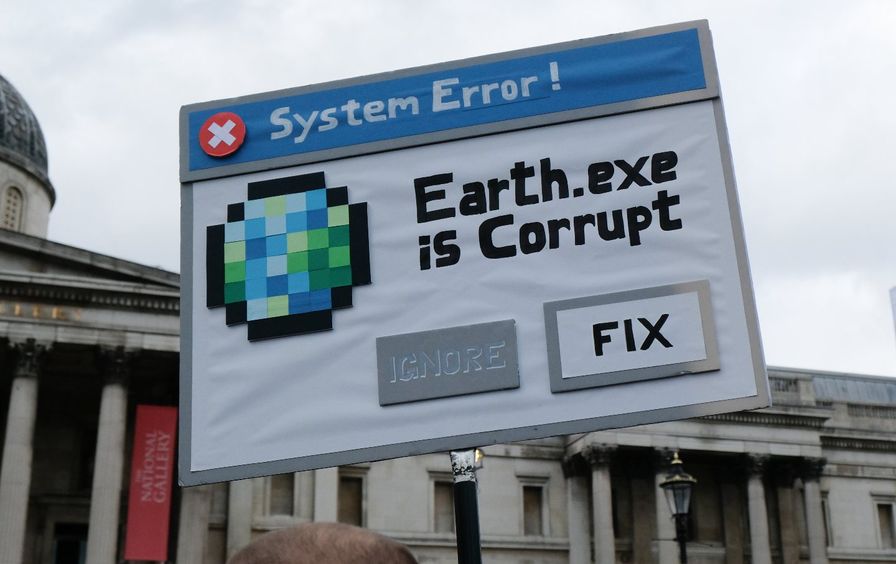Day four of the weeklong Techonomy Virtual: Reset + Restore was all about the connection between tech and the improving society, especially achieving the UN’s 17 Sustainable Development Goals (SDGs) for 2030. It kicked off with a rock star speaker—literally. During the first session, Techonomy’s Josh Kampel spoke with Adam Met, bassist for platinum-selling AJR. But Met is also executive director of a company he helped start called Sustainable Partners, which is about using the platforms of celebrities to explain and translate the global goals for a younger audience. He is relentlessly working to help achieve the SDGs for 2030. So is the following speaker, Heather Johnson, who heads sustainability and corporate responsibility at telecommunications equipment company Ericsson. She spoke about why networks matter so much for achieving the goals. Andrew Le, CEO of Buoy Health, next explained how his company uses chatbots and AI to figure out when employees can go back to the office. Jeroo Billimoria, founder of Catalyst 2030, is yet another passionate partisan of the SDGs, who created an NGO to marshal energies of other NGOs in support of the goals. Finally, telecoms policy expert Larry Irving joined Federal Communications Commissioner Jessica Rosenworcel to discuss in alarmed tones how unacceptable America’s connectivity crisis is. Here’s what I experienced on day four.
2 p.m. – Adam Met of AJR on Rocking the SDGs
Full Disclosure: I saw AJR at Radio City Music Hall last October and loved it; you can definitely call me a fan. However, I did not know how remarkable Adam Met is off-stage as well. He’s currently writing his PhD dissertation on the relationship between international human rights law and sustainable development at Columbia; he works with the UN as a sustainable development advocate, and to promote the SDGs he founded that innovative “think and action tank,” Sustainable Partners.

“Sustainable Partners is the brainchild of the first partnership I had with the UN I,” Met says. “It’s funny, I guest lectured at Columbia last year and I was talking about the SDGs, and I called them sexy. It’s weird to think of them as sexy, but I think of them as one of the most incredible things ever because I don’t think any time in the world’s history have 193 countries agreed on the same thing at the same time, and that’s what you get with the SDGs.”

2:24 p.m. – Heather Johnson on Empowering Educators, Tackling Climate Change, and Why Telecom Networks Matter More Than Ever
“Ericsson is a company over 140 years old, founded on the premise that communication is a basic human need…and we carry that forward,” Ericsson’s Heather Johnson explains. Her company has been working hard on the SDGs since even before they were announced in 2015, and was deeply involved with their UN predecessors, the Millenium Development Goals (which were more or less achieved). She says access to network infrastructure is key to achieving many of the other goals, from quality education and work for all to good health and sustainable cities. And the pandemic has crystalized even more how critical communication networks are globally. She showed a video of how Ericsson helped a school system in Rutland, Vermont make it possible for unconnected kids to learn from home in just two weeks this spring.
“Thinking about how technology…empowers a generation of students is…at the core of what we do,” she says.

2:40 p.m. – Andrew Le on Using Tech to Figure Out When It’s Safe to Go Back to the Office
Dr. Andrew Le, CEO of Buoy Health, is using creative innovation to help with critical healthcare decisions. He started his AI-powered digital health company when he was still in medical school, to help remove the fear and confusion people often encounter when simply “Googling” health symptoms. Now, he’s pivoted his software to fight back against COVID-19, using data to help workers and companies figure out when exactly it’s safe for people to be back in the office.

Because most of our understanding about how to respond to COVID is at the country level, “it’s not straightforward [for employers in the process of reopening offices],” Le explains, but for now, he’s able “to give them the tools to make the best data-informed decision today.”
2:56 p.m. – Jeroo Billimoria on Her Life’s Work – Achieving the SDGs
“Even before this crisis, normal wasn’t working,” say Jeroo Billimoria, founder of Catalyst 2030, a global coalition of NGOs and activists focused on achieving the United Nations’ Sustainable Development Goals for 2030. With a remarkable background as an advocate for homeless people and children both in the U.S. and India, the now Amsterdam-based Billimoria says her passion is “trying to make sure everyone has the same things that I’m blessed to have.”
Through Catalyst 2030, Billimoria is working with the UN to try to create a system integrating the insights of NGOs into policymaking. In a recently released report, Catalyst 2030 made 140+ recommendation, and “if they are met, we can achieve the SDGs by 2030,” Billimoria says. If not, the goals likely won’t be achieved until 2094.
“Partnerships for the Goals” is actually the 17th and final SDG, and Billimoria’s key insight was that NGOs were being left out of too many discussions with the UN, governments, and business. She says Catalyst 2030 wants to “create platforms for information sharing,” and continued, saying, “a lot of our work needs help from businesses, but we can help businesses, too.” She says NGOs have expertise that can help businesses tackle a number of issues. “If we work together, we can achieve much more,” she says.
3:11 p.m. – Larry Irving and Jessica Rosenworcel on Why 30% of Kids Can’t Connect
“I want to start with some stats,” Kirkpatrick says, opening the day’s final session, with the FCC’s Rosenworcel and Larry Irving. “Five million American households can’t get broadband because they just don’t have any way to do it; 20 million American households can’t afford it. That’s 25 million American household that can’t connect to the internet. Meanwhile, 30 percent of American children don’t have the connection needed for education.” And this at a time when as many as three-quarters of the country’s children are expected to go to school online at least part of the time this fall.
“Shame on the United States,” Rosenworcel says. “This infrastructure is as essential as water and electricity…it needs to become a national imperative to get everyone online. We’ve got to figure out how to close that homework gap.”
“There’s no way this country can realize all that we’re trying to realize if we aren’t connected,” adds Irving, whose consulting firm provides strategic advice to telecommunications and technology companies, investors, foundations and nonprofit organizations. “There is no way you can do in America what needs to be done without making an investment in infrastructure…these ‘digital deserts,’ as some like to call it, these gigabit deserts, they exist in every city. Unfortunately, the exist in every city where people are poor, where people are brown, where people are Black, where people are immigrants. We’ve got to do better than that.”
According to Rosenworcel, to achieve nationwide connectivity we need to set audacious goals and build policies toward them, plus increase competition. The reason broadband costs more in the U.S. than in other countries, she says, is that there just isn’t enough competition. The move to 5G, among other factors, will help.
3:42 p.m.
As the program wraps up, Techonomy chairman Jim McCann (founder of 1-800-FLOWERS) joins Kirkpatrick and Kampel. His key takeaway: “[The day’s programming] couldn’t have shined a light more brightly on how important it is to have fast internet connectivity at an affordable rate.”















